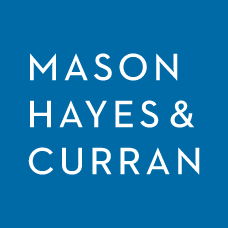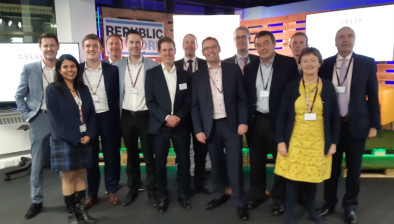Analysis: ‘Sustainability through Quality’ slogan not sufficiently distinctive for trade mark protection

John Milligan and Hazel McDwyer
Mason Hayes & Curran associate John Milligan and partner Hazel McDwyer consider a recent EU ruling on a trade mark that was perhaps too sustainable.
The General Court of the EU recently held that the slogan “Sustainability through Quality” is not a trade mark as it is not sufficiently distinctive. This is a timely update, particularly given the recent surge in green-branding practices and ‘green’ marketing tools being rolled out by businesses worldwide.
According to the European Union Intellectual Property Office (EUIPO), over 18,700 ‘green’ EU trade marks were filed in 2021, which represented an all-time high. Our intellectual property team considers this General Court decision and its impact.
Background
The applicant, Groschopp AG Drives & More applied for the word mark ‘Sustainability through Quality’ as an EUTM in late 2019. The application covered a wide range of goods in classes 7 (engines), 9 (computer software) and 16 (paper and stationery) as well as some other services including computer services and engineering services in class 42. The EUIPO Examiner rejected the application in March 2020 on the grounds that the trade mark was descriptive and not sufficiently distinctive. That decision was appealed and the EUIPO Fifth Board of Appeal ultimately dismissed the appeal.
Board of Appeal decision
The Board of Appeal held that the mark would be understood by the relevant public as an advertising slogan and not as an indication of origin of the goods and services in question. It further held that it was apparent from the case law, that a slogan with a formally unusual structure such as one which used humor or unusual alliterations, would be a criterion for a finding of distinctive character. However, the Board was satisfied that this slogan did not have those characteristics. Rather, the expression “Sustainability through Quality” simply meant “durability through quality.” It would communicate, in an immediately understandable way, that sustainability must pass through a quality product and would reflect a trend perfectly in line with the times, in combining sustainability with quality. According to the Board, the slogan was a promotional and laudatory message which underlined the positive aspects of the goods concerned, namely that they were durable.
General Court decision
The applicant then appealed to the General Court of the EU, which upheld the Board’s decision. The applicant argued, in submissions, that “Sustainability through Quality” should be considered similarly distinctive to the slogan “Vorsprung durch Technik”, or “advantage through technology” in English, which was at issue in Audi v OHIM C-398/08. The General Court was quick to point out the differences between the two cases, however. According to the Court, the Audi slogan was “renowned and used for many years by Audi” to promote the sale of its motor vehicles. Therefore, it considered that the relevant public was accustomed to linking that slogan to Audi’s motor vehicles. This, it deemed, facilitated the identification by the public of the goods’ commercial origin. Also, the Court, in the Audi case, had found that the Audi slogan could have several meanings. For instance, it could constitute a play on words or be perceived as fanciful, surprising, unexpected, and even memorable. The same could not be said of the slogan “Sustainability through Quality”.
In examining the slogan at issue in this case, the Court was satisfied that it conforms to English grammar and syntactical rules, where the word “through” expresses that the result “sustainability” is achieved because of “quality”. The Court stated that the slogan is not a play on words and its meaning is in no way vague, imprecise or ambiguous. Rather, it has one meaning only which is that sustainability is, or must, be achieved through quality. The consequence is that the slogan is entirely understandable and clear for English-speaking consumers of the goods and services at issue and does not have any unusual, fanciful, surprising or unexpected characteristic to make it easily remembered by consumers.
Comment
The decision is significant for a number of reasons:
- It is a reminder of the practical difficulties with registering slogans as trade marks in the EU.
- It demonstrates the burden on applicants, in seeking to rely on distinctive character, to provide specific and substantiated information establishing that the mark applied for has an intrinsic distinctive character or one acquired through use. This is a high bar to meet but where the applicant has in-depth knowledge of the market in question, it will be best placed to do this.
- It is also relevant to the ongoing debate about ‘greenwashing’ and the requirement for ‘green’ trade marks to ensure they are not misleading or deceptive as to the relevant products or services actually being environmentally friendly. Read a recent related article here. In light of businesses’ eagerness to communicate sustainability and respect for the environment, this presents significant new challenges as to how they market and communicate those messages.

- John Milligan is an associate and Hazel McDwyer is a partner at Mason Hayes & Curran LLP.








